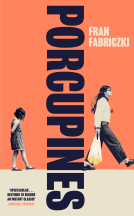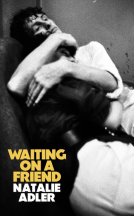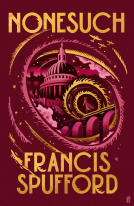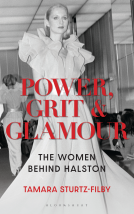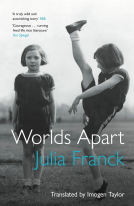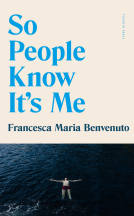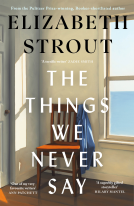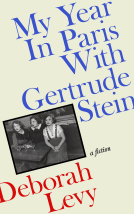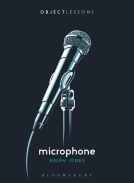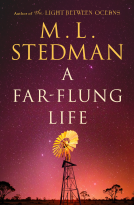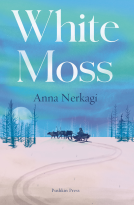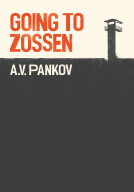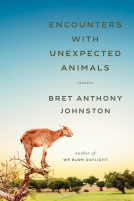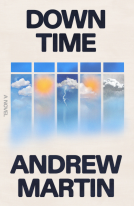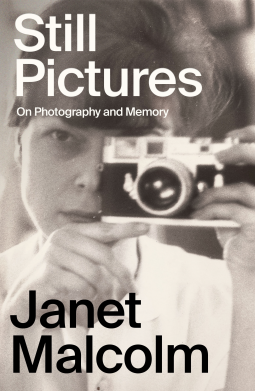
Still Pictures
On Photography and Memory
by Janet Malcolm
This title was previously available on NetGalley and is now archived.
Send NetGalley books directly to your Kindle or Kindle app
1
To read on a Kindle or Kindle app, please add kindle@netgalley.com as an approved email address to receive files in your Amazon account. Click here for step-by-step instructions.
2
Also find your Kindle email address within your Amazon account, and enter it here.
Pub Date Jan 10 2023 | Archive Date Feb 28 2023
Description
“Superb . . . [The] final, splendid, most personal work of [Janet Malcolm’s] long career.” —Charles Finch, The New York Times Book Review
For decades, Janet Malcolm’s books and dispatches for The New Yorker and The New York Review of Books poked and prodded at reportorial and biographical convention, gesturing toward the artifice that underpins both public and private selves. In Still Pictures, she turns her gimlet eye on her own life—a task demanding a writer just as peerlessly skillful as she was widely known to be.
Still Pictures, then, is not the story of a life but an event on its own terms, an encounter with identity and family photographs as poignant and original as anything since Roland Barthes’s Camera Lucida. Malcolm looks beyond the content of the image and the easy seductions of self-recognition, constructing a memoir from memories that pose questions of their own.
Still Pictures begins with the image of a morose young girl on a train, leaving Prague for New York at the age of five in 1939. From her fitful early loves, to evenings at the old Metropolitan Opera House, to her fascination with what it might mean to be a “bad girl,” Malcolm assembles a composite portrait of a New York childhood, one that never escapes the tug of Europe and the mysteries of fate and family. Later, Still Pictures delves into her marriage to Gardner Botsford, the world of William Shawn’s New Yorker, and the libel trial that led Malcolm to become a character in her own drama.
Displaying the sharp wit and astute commentary that are Malcolmian trademarks, this brief volume develops into a memoir like few others in our literature.
Advance Praise
"[An] evocative posthumous memoir . . . Witty (“I was infected early on with the virus of romance”) and reflective (“The glitter of memory may be no less deceptive”), this is a monument to a master of her craft." —Publishers Weekly
"[Malcolm exposes] sharp observations rendered in the precise, stylish prose that earned her acclaim . . . A graceful meditation on memory." —Kirkus Reviews
Available Editions
| EDITION | Other Format |
| ISBN | 9780374605131 |
| PRICE | $26.00 (USD) |
| PAGES | 176 |
Average rating from 16 members
Featured Reviews
 Book Trade Professional 23650
Book Trade Professional 23650
It's a treat to have another bite of Janet Malcolm's unique apple: STILL LIFE lacks perhaps the tartness of Malcolm's brilliant biographies, but its autobiographical tone remains uniquely hers. Fragmentary yet incisive (and insightful), this volume sits comfortably beside the late author's masterworks.
Many thanks to FSG and Netgalley for the pleasure of the read.
A last despatch from the great...well, biographer is hardly the word. Biographer of biographies, maybe? The woman who'd map the thickets that had grown up around a reputation over the years, who made a career out of giving her subjects enough rope. Indeed, the final chapters here go full 'needless to say, I had the last laugh' regarding one person she wrote about who had the temerity to sue, and the fortuitous mistrial which gave Malcolm a chance to drop her New Yorker (as in the magazine) persona and show him the error of his ways. She also admits to an absolutely brilliant prank on two generations of photography students. But these chapters are the exception; for the most part this is a book in which someone nearing the end of a long life sets down fragmentary memories of a lost childhood, simply so that some echo of those moments would be preserved once she herself was no longer around to remember them. And it was an eventful life; I had no idea that her family were Czech Jews who'd narrowly escaped the Holocaust, and it seems to be only while writing this that Malcolm herself realised, for instance, that having thought of her parents as permanent exiles, in fact they spent most of their life in America. Where they became more respectable figures than the bohemian (in both senses) young couple who'd partied with Karel Capek. Although, of course, many couples change like that once they have kids, even without one of history's great monsters chasing them from Mitteleuropa to the USA. The framing device is a series of photographs, each sparking memories – much like Jarvis Cocker's recent memoir in objects, as it happens, though the mood here is considerably more elegiac. She is, of course, still Janet Malcolm to the end, keenly aware that this account must be as incomplete and partial as any she ever picked at, if not more so. But there's a fondness here, a desire to somehow fix happy moments from long ago, that weighs heavier: "My mind is filled with lovely plotless memories of him. The memories with a plot are, of course, the ones that commit the original sin of autobiography, which gives it its vitality if not its raison d'etre. They are the memories of conflict, resentment, blame, self-justification – and it is wrong, unfair, inexcusable to publish them. "Who asked you to tarnish my image with your miserable little hurts?" the dead person might reasonably ask." So there's just enough of that sin here to stop things getting sappy in a way Malcolm would never have allowed herself, but the dominant mood is a great sorrow at all the little joys lost to Time, all the now-insoluble mysteries we might have solved if only we'd thought to ask in time: "We are each of us an endangered species. When we die, our species disappears with us. Nobody like us will ever exist again. The lives of great artists and thinkers and statesmen are like the lives of the great extinct species, the tyrannosaurs and stegosaurs, while the lives of the obscure can be likened to extinct species of beetles. Daddy would probably not find this conceit of great interest. He moved along his own trail. He liked to pick and identify certain small, frail, white wildflowers that it never occurred to me to notice, and that he never forced on my attention."
(Netgalley ARC)
I came across the writing of Janet Malcolm a long time ago, when I found her book: The Silent Woman: Sylvia Plath and Ted Hughes. What fascinated me about Malcolm's approach to a subject that there were already far too many books about, was how fresh it felt and what an interesting angle she took. It was as much about the difficulties for a biographer in writing about someone else's life as anything else. It was personal, it was profound. It was original. And that's what I found in this book, too. This is a series of curated snapshots from Malcolm's archive, each accompanied by her thoughts on it and a delve into the past. It's not chronological. Not all the pictures are brilliant. Some are completely unilluminating. It's what they spark in Malcolm that is the joy of this book. It's wonderful. My only criticism is that it is too short.
